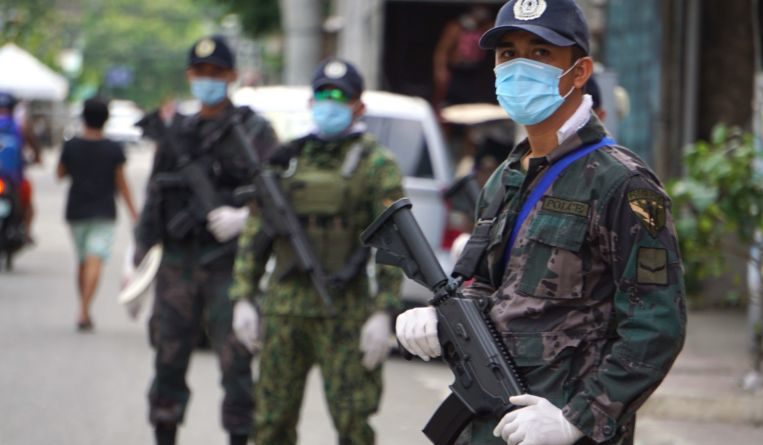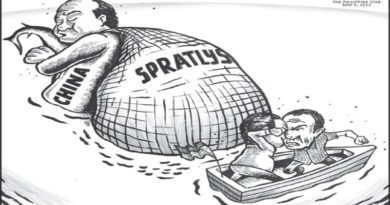DU30 E.J.K-DRUG WAR: Duterte signs controversial anti-terror law in the Philippines
The law expands the definition of terrorism and bolsters police powers of surveillance, arrest and detention.PHOTO: AFP
MANILA – Philippine President Rodrigo Duterte has signed into law a controversial Bill which the government says will add more teeth to its campaign against terrorists and communist insurgents but which civil rights advocates deem as a crackdown on dissent and free speech.
Mr Duterte’s spokesman Harry Roque confirmed in a text message on Friday (July 3) that the so-called anti-terror Bill is now a law.
The law expands the definition of terrorism and bolsters police powers of surveillance, arrest and detention. It authorises the government to wiretap suspects, arrest them without warrants and hold them without charge for 14 days, among other things.


Mr Roque, a lawyer, had assured previously that unless there was a “clear and present danger”, the anti-terror Bill could not be used against the opposition, leftist groups and the government’s other detractors.
Senate President Vicente Sotto, a former vice-mayor who rode on a tough-on-crime platform, said “only terrorists and their supporters need to fear this law”.
“It has a lot of safeguards. Terrorism, as defined, does not include advocacies, protests, dissent, industrial strikes, mass actions and other exercises of civil and political rights. That is very clear,” he said.
United Nations High Commissioner for Human Rights Michelle Bachelet on Tuesday warned against the law’s potential “chilling effect” on humanitarian and human rights work.
The Philippines’ Commission on Human Rights warned that the anti-terror law “paves the road for possible abuse, as it tends to blur the distinction between terroristic activities and ordinary crimes”.
The commission’s spokesman Jacqueline de Guia said it could be “used to limit substantial freedoms, including expression of dissent and critical perspectives, most especially by civil society and human rights groups, under a democracy”.
“This law is not meant to combat terrorism. It is meant to give the state the power to tag whomever they please as a terrorist,” said Deputy Speaker of the House of Representatives Mujiv Hataman.
Senator Panfilo “Ping” Lacson, a former police chief and one of the authors of the legislation, said last week the law could still be amended to address concerns by civil rights advocates and human rights activists.




But he also defended the law as it is currently written.
“There are people, learned as they are, who merely jumped into the wagon of criticisms without thoroughly reading and understanding the provisions under the proposed measure,” he said.
The anti-terror law had its roots more than three years ago after more than a thousand Islamic State in Iraq and Syria (ISIS)-linked militants seized a major city in southern Philippines, Marawi, in May 2017. They fought security forces to a stalemate for six months.
By the time the fighting ended, half of Marawi lay in ruins, and tens of thousands of families were displaced from their homes.
As a result of that debacle, security officials pressed Congress for a tougher law against terrorists.


They sought, for instance, to extend the period when security forces could detain suspects without charges, from three days to 14. Three days, the reasoning went, were not enough to get “actionable information”. Australia’s counter-terrorism law prescribed 14 days, while Indonesia’s allowed for up to a year, they said.
They also wanted to remove a provision in an existing law that provides for reparation of up to 500,000 pesos (S$14,000) a day for wrongful arrests.


SIGN UP TO RECEIVE OUR EMAIL
.
The most important news of the day about the ASEAN Countries and the world in one email: [email protected]
7.4.2020










